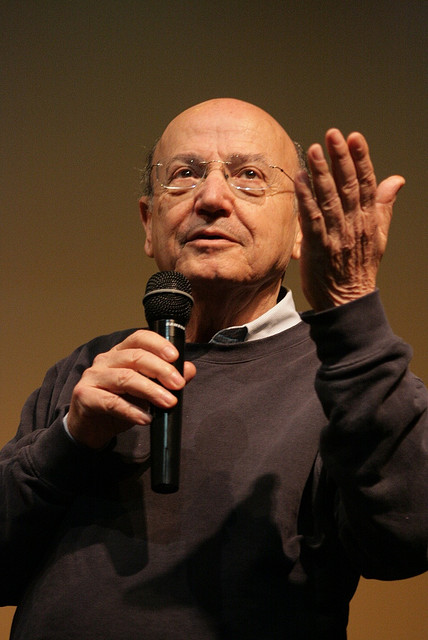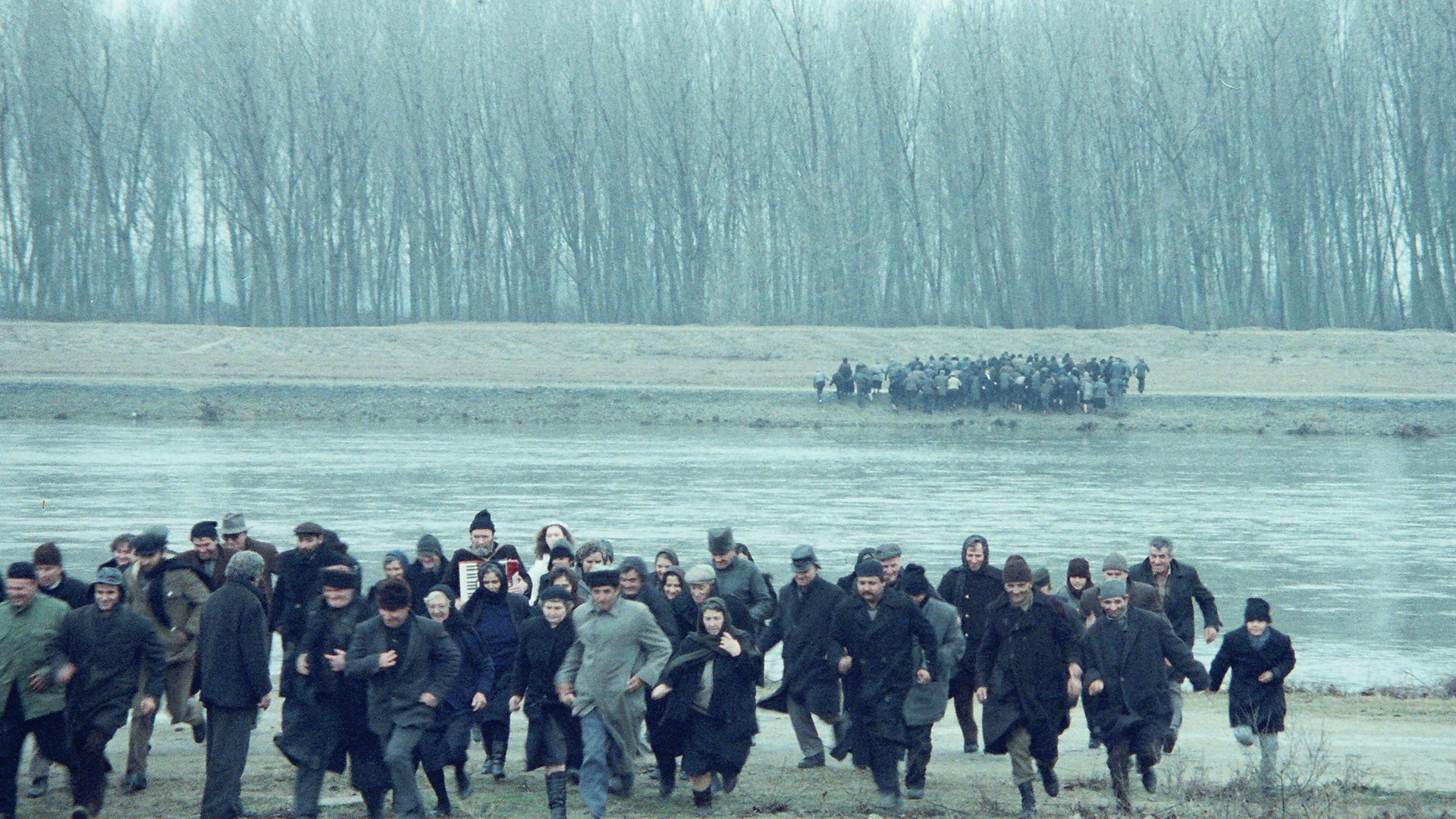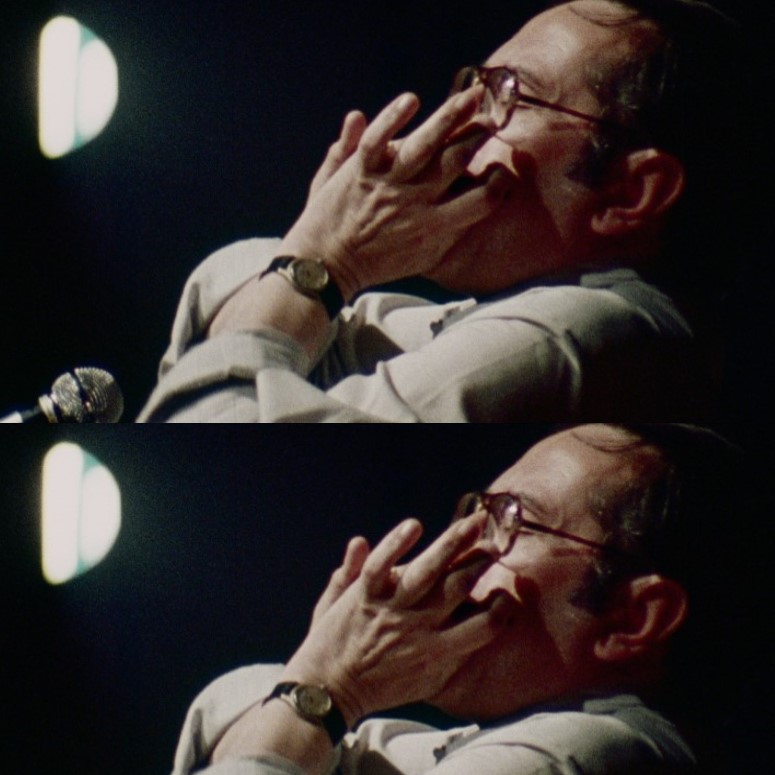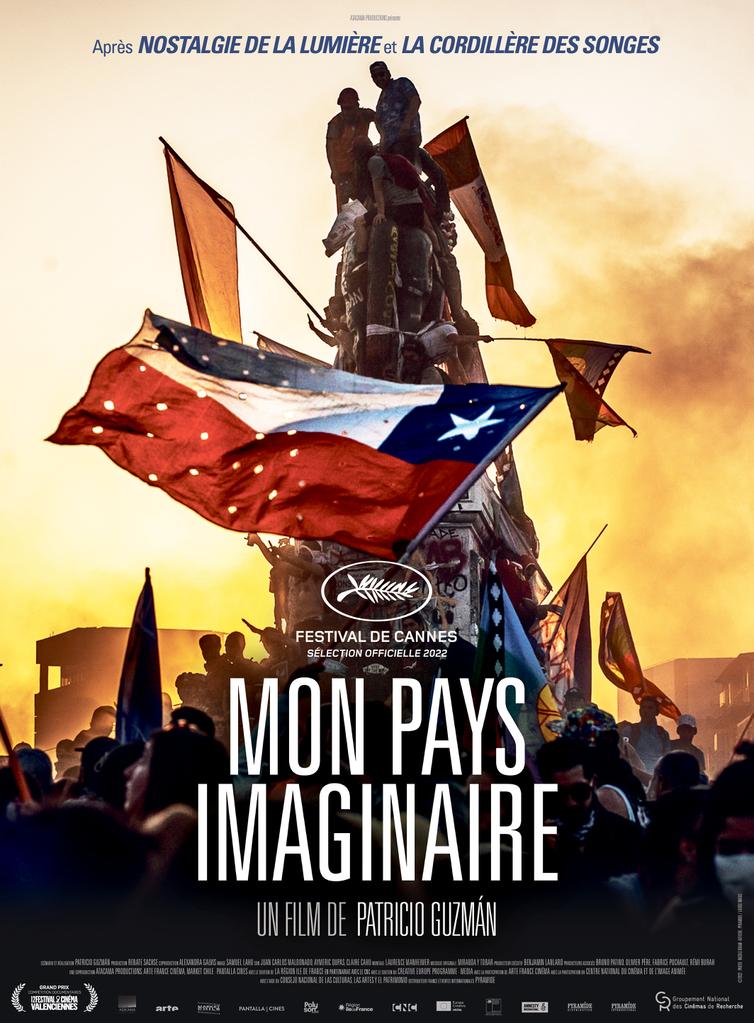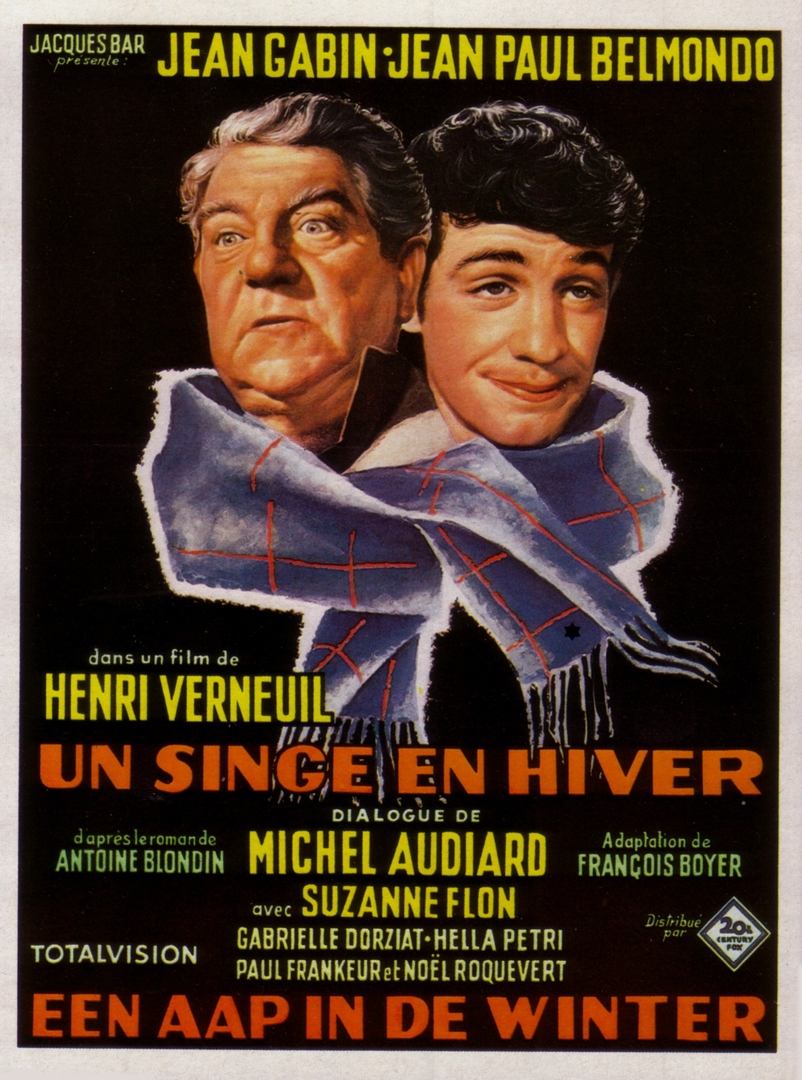The Suspended Step of the Stork
After several nuanced portrait films of Quebec cultural figures, Simon Beaulieu, also a screenwriter, follows a trajectory that brings his work closer to the essay film. In addition to screening his films, the carte blanche we offer him showcases the diversity of his influences and the eclecticism of his tastes.
In competition for the Palme d'Or at the 1991 Cannes Film Festival
In northern Greece, a number of refugees hope to cross a river that acts as a border. Alexandre, a journalist, believes he spots a Greek politician in the crowd, a person who vanished a decade ago.
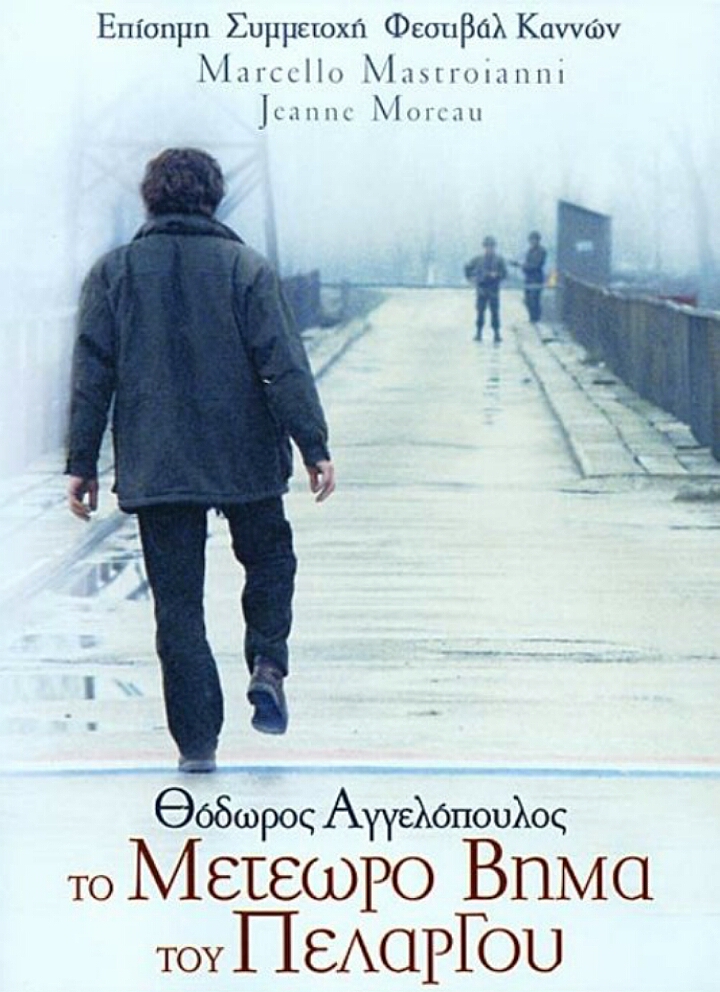
Theo Angelopoulos
Theo Angelopoulos is a Greek filmmaker. He is considered a leading figure of the Greek New Wave and a prominent figure in modern European cinema. After working as a film critic from 1964 to 1967, he turned to directing. His early films, from 1970 to 1980, are marked by political criticism, primarily of the dictatorship in Greece. He won the Golden Lion and the FIPRESCI Prize at the Venice Film Festival for Alexander the Great in 1980. With his next three films, he moved away from collective narratives based on history to focus on individual and internal experiences, while maintaining a political discours. He then expanded his discourse, previously focused on Greece, to the world with The Suspended Step of the Stork (1991), Ulysses' Gaze (1995), and Eternity and a Day (1998), which earned him the Palme d'Or at the Cannes Film Festival. His films are characterized by a hypnotic slowness, enhanced by the sporadic use of voice-over narration. Their complex narrative structures leave ample room for poetic visions.
